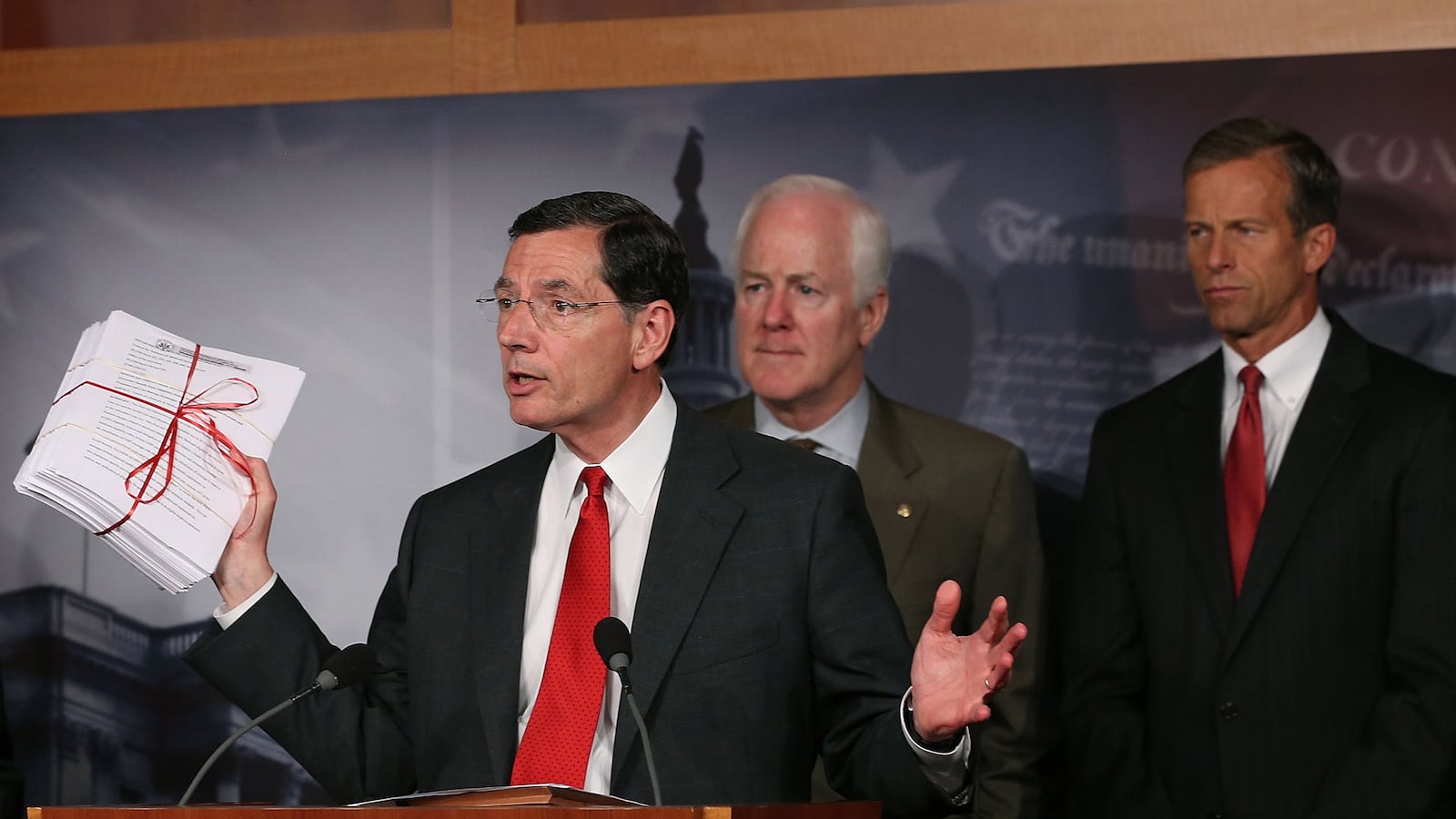Call it The Guns of August moment in October.

In 1962, Barbara Tuchman published a brilliant narrative, The Guns of August, which told the disastrous story of how the world was swept into World War I, a conflict no one really wanted and few anticipated. The tragically comic entry into war—an obscure duke shot in an obscure place for obscure reasons—was quickly forgotten amid years of trench war and recriminations.
Tuchman was often criticized by academicians for being a self-taught historian with only a BA. But what she grasped better than so many Ph.D.s was the role that emotion and human frailties played in the sweep of history. Those confusing days leading up to World War I were dominated by a near total inability of the different parties to understand either the mind or the heart of opposing parties. It wasn’t just that each side thought they were justified in their opinions; they lacked the ability to fathom how reason would allow for the possibility of a different opinion.
And so it is today. Each side in this dreary stalemate mirrors the other’s belief in the righteousness of their cause. Worse yet, there is a need that seems to grow each day to consider the other side not just possessing a different opinion, but a fundamental inability to ever change.
This battle is fought with ever more petty charges and counter charges, with each side seizing on any and all bits of evidence that victory is near. On Wednesday, AP released poll numbers showing President Obama at 37 percent approval, a number reached by President Nixon exactly 40 years ago. On Thursday night, a WSJ/NBC News survey showed terrible numbers for Republicans.
The premise of this poll obsession is that somehow Republicans went into this fight with the idea it would give them a quick boost in the numbers. Or that President Obama, who will never run for office again, is opposing Republicans to drive numbers. That’s as flawed as thinking that the president drew a red line over Syrian chemical weapons because he thought it would prove popular. Contrary to the doubts of an often cynical public, politicians often take on tough issues because they believe it is the right course of action. One has to assume that’s why Barack Obama has stood behind Obamacare even when the majority of the public has been negative on his approach.
In a country of more than 315 million people, there’s an effort to give great weight to one person who is either benefiting from the Affordable Care Act, or who will see dramatic rate increases. This is all meaningless. More than almost any government program, Obamacare is going to effect a vast swath of America. If the majority of people have a positive experience, it will be viewed favorably. If the experience is a lousy one, the collective opinion will be unfavorable. The personal interaction with Obamacare is going to trump ideology on both sides.
As a political litmus test, Obamacare is a lot like the war in Iraq. If it goes well, those who supported it stand to benefit. If it goes badly, those who oppose will run on their opposition. If you want to see how the new health-care law is really playing with the public, watch the Democrats in contested races in 2014. If they are running ads taking credit for supporting Obamacare, that will be proof that it’s being seen as a success. If not, it will likewise be indicative of failure.
Same can be said of this shutdown. If a year from now, either side is running ads talking about the shutdown—being for or against—that will be a telling sign of how this has played out in the public filter.
The president compares Obamacare to an Apple product, but if these clunky ACA websites were run by Apple under Steve Jobs, he would have fired the entire launch team. As it stands now, Americans are being told they have to buy a product while it’s proving almost impossible to get inside the store. These interminable waiting periods online are the virtual equivalent of Jimmy Carter’s gas lines.
It’s inevitable that we tend to believe the drama of any big moment is unique, but it’s rarely the case. Of the 17 government shutdowns in the modern era, the first five were over abortion, with conservative Democrats who controlled the House fighting liberal Democrats who controlled the Senate. The liberals in the Senate wanted Medicaid to pay for abortions in the case of rape, incest, and the life of the mother while the conservative Democrat House leadership (and most Republicans) wanted Medicaid to only cover abortion in the event the life of the mother was at stake.
That fight within the Democratic Party makes today’s shutdown battle look civil. Those were battles fought with cries of “baby killers” and plastic fetuses thrown at lawmakers. The country and the Democratic Party survived that ugly period and I suspect we’ll survive this one, as well.
At the root of all this drama is the reality that Obamacare was passed on a strict party-line vote. It is never a good thing when a major piece of legislation that affects so many Americans lacks bipartisan support. Winning a vote is not the same as winning the support of the majority of the people and that’s what Obamacare needs in order to be embraced. It’s a sobering lesson for both sides in the absolute necessity to find common ground—both before legislation becomes law and now. Campaigns are about winning and losing. Governing is not.





